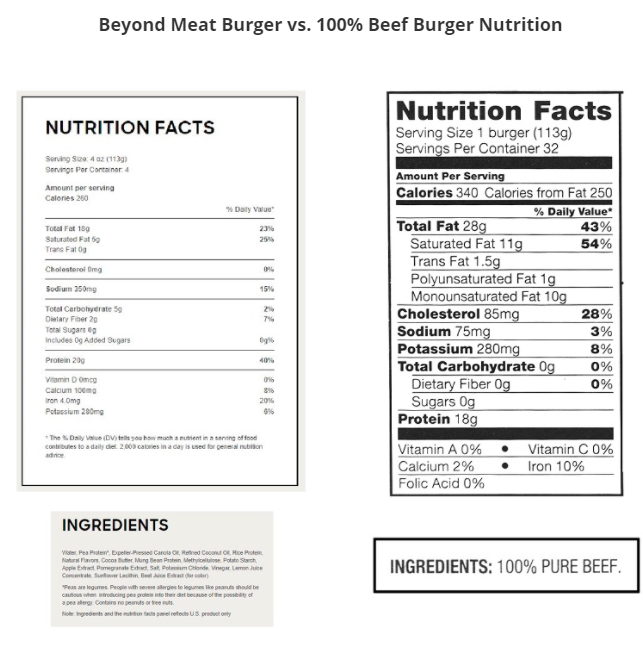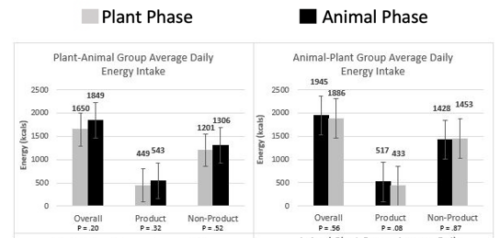I learned about this one from a PR tweet from @Brigham Research: “Dr. JoAnn Manson…& colleagues report the main findings of the first ever randomized trial of a cocoa flavanol supplement on cardiovascular disease endpoints.”
Its spectacular results: Supplementation with cocoa flavanols led to a 27% reduction in deaths from cardiovascular disease among all participants taking the supplement, and a 39% reduction in those deaths when they excluded participants who did not take the pills properly.
From taking cocoa flavanol supplements?
Who paid for this?
Bingo.
The study (still in preprint): Effect of Cocoa Flavanol Supplementation for Prevention of Cardiovascular Disease Events: The COSMOS Randomized Clinical Trial. Sesso HD, et al. American Journal of Clinical Nutrition, nqac055, https://doi.org/10.1093/ajcn/nqac055
Conclusion: “Cocoa extract supplementation did not significantly reduce total cardiovascular events among older adults but reduced CVD death by 27%….”
Funding: “The Cocoa Supplement and Multivitamin Outcomes Study (COSMOS) is supported by an investigator-initiated grant from Mars Edge, a segment of Mars dedicated to nutrition research and products, which included infrastructure support and the donation of study pills and packaging…[and other sources].
Conflicts of interest: Drs. Sesso and Manson reported receiving investigatorinitiated grants from Mars Edge, a segment of Mars Incorporated dedicated to nutrition research and products, for infrastructure support and donation of COSMOS study pills and packaging,
Pfizer Consumer Healthcare (now part of GSK Consumer Healthcare) for donation of COSMOS study pills and packaging during the conduct of the study. Dr. Sesso additionally reported receiving investigator-initiated grants from Pure Encapsulations and Pfizer Inc. and honoraria
and/or travel for lectures from the Council for Responsible Nutrition, BASF, NIH, and American Society of Nutrition during the conduct of the study. No other authors reported any conflicts of interest.
Comment: Déjà vu all over again.
Mars, as I described in detail in Unsavory Truth, has been trying to make you think that chocolate is a health food (M&Ms!) for decades. It created a special brand, CocoaVia, for this purpose. Here is an excerpt:
In 1982, Mars established a chocolate research center in Brazil.[i] Its scientists were particularly interested in cocoa flavanols, a category of flavonoids with antioxidant, anti-inflammatory, and other heart-healthy effects. Through the 1980s and 1990s, Mars’ scientists produced studies suggesting such benefits.
Alas, cocoa flavanols come with complications. They taste bitter (dark chocolate contains more of them). They are present in such small amounts that you would have to eat a quarter to a full pound of chocolate a day to achieve cardiovascular benefits.[ii] Worse, they are destroyed by traditional chocolate processing.[iii] The losses may explain why a Hershey-funded clinical trial failed to find neuropsychological or cardiovascular benefits from eating dark chocolate when compared to a placebo.[iv]
But to return to CocoaVia: Mars developed a process to preserve the cocoa flavanols during processing, and combined the rescued flavanols with cholesterol-lowering plant sterols to make chocolate bars and chocolate-covered almonds. By 2002, the company decided that it had enough research to promote CocoaVia candies as heart-healthy.[v] As the New York Times put it, Mars was on a “corporate quest to transform chocolate into a healthy indulgence.”[vi] Mars marketed the candy bars—two a day, no less—as a means to increase blood flow, lower blood pressure, and reduce the risk for heart disease.
The FDA takes a dim view of unproven claims like “chocolate prevents heart disease.” In 2006, the agency sent Mars a warning letter complaining that claims like “promotes a healthy heart” and “now you can have real chocolate pleasure with real heart health benefits,” were false, misleading, and easily misinterpreted…Chocolate, the FDA pointed out, is high in saturated fat (it didn’t mention sugar). Furthermore, the claim “Cocoa Via Chocolate Bars contain natural plant extracts that have been proven to reduce bad cholesterol (LDL) by up to 8%,” meant that Mars was advertising chocolate as a drug. If Mars wanted to make drug claims, it would need to conduct clinical trials to prove that eating CocoaVia chocolate bars prevented heart disease.[vii]
Rather than run the financial and scientific risk of doing that, Mars gave up on candy bars and began marketing CocoaVia in pills and powder as a “daily cocoa extract supplement.” In doing this, Mars could take advantage of the more lenient marketing claims allowed by the Dietary Supplement Health and Education Act (DSHEA) of 1994. This act permits “structure/function” claims, those proposing that a supplement is good for some structure or function of the body. Under DSHEA, the labels of CocoaVia are allowed to say that these supplements “promote a healthy heart by supporting healthy blood flow.”
To convince people to take CocoaVia supplements, Mars funds research. In 2015, it funded studies demonstrating that cocoa flavanols are well tolerated in healthy men and women,[viii] support healthy cognitive function in aging,[ix] can reverse cardiovascular risk in the healthy elderly,[x] and improve biomarkers of cardiovascular risk.[xi]
Lest the “eat more chocolate” implications of these studies be missed, Mars issued a press release: “Cocoa flavanols lower blood pressure and increase blood vessel function in healthy people.”[xii] The company followed this announcement with a full-page ad in the New York Times quoting a dietitian: flavanols “support healthy blood flow…which allows oxygen and nutrients to get to your heart more easily.” …The ad directed readers to more information on a paid ad on the Times’ Website. You have to look hard in these ads to discover that Mars owns CocoaVia; the company’s name only appears in barely legible print as part of the trademark.[xiii]
But Mars, which already has funded “more than 150 peer-reviewed scientific papers and [has] approximately 100 patents globally in the field of cocoa flavanols”[xiv] has more ambitious research plans. In 2014, the company announced that in partnership with the National Heart, Lung, and Blood Institute it would provide “financial infrastructure support “ for an ambitious placebo-controlled, randomized trial of the effects of cocoa flavanols alone or in combination with vitamin supplements, on heart disease and cancer risk in 18,000 men and women over the age of 60.[xv] The five-year trial, called the Cocoa Supplement and Multivitamin Outcomes Study (COSMOS), has evolved somewhat since then. It now lists Brigham and Women’s Hospital in Boston as the sponsor, and Mars as a “collaborator” along with the Fred Hutchinson Cancer Research Center in Seattle and Pfizer. NIH seems no longer to be involved.[xvi]
We now have the result of this trial. Even though cocoa flavanol supplements did not reduce cardiovascular events, Mars got its money’s worth from what must have been a very expensive study.
Tomorrow: a second report from this trial, with surprising results.
References
[i] Mars, Inc. The history of CocoaVia. CocoaVia.com
https://www.cocoavia.com/how-we-make-it/history-of-cocoavia
[ii] Vlachojannis J, Erne P, Zimmermann B, Chrubasik-Hausmann S. The impact of cocoa flavanols on cardiovascular health. Phytother Res. 2016;30(10):1641-57.
[iii] Andres-LaCueva C, Monagas M, Khan N, et al. Flavanol and flavonol contents of cocoa powder products: influence of the manufacturing process. J Agric Food Chem. 2008;56:3111-17.
[iv] Crews WD, Harrison DW, Wright JW. A double-blind, placebo-controlled, randomized trial of the effects of dark chocolate and cocoa on variables associated with neuropsychological functioning and cardiovascular health: clinical findings from a sample of healthy, cognitively intact older adults. Am J Clin Nutr. 2008;87(4):872-80.
[v] Meek J. Chocolate is good for you (or how Mars tried to sell us this as health food). The Guardian, Dec 23, 2002.
https://www.theguardian.com/uk/2002/dec/23/research.highereducation
[vi] Barrionuevo A. An apple a day for health? Mars recommends two bars of chocolate. NY Times, Oct 31, 2005.
The FDA considers candy bars to be foods labeled with Nutrition Facts panels. Supplements are labeled with Supplement Fact panels.
[vii] FDA. Inspections, compliance, enforcement, and criminal investigations. Warning letter to Mr. John Helferich, Masterfoods USA. FDA, May 31, 2006. http://www.fda.gov/ICECI/EnforcementActions/WarningLetters/2006/ucm075927.htm
[viii] Ottaviani JI, Balz M, Kimball J, et al. Safety and efficacy of cocoa flavanol intake in healthy adults: a randomized, controlled, double-masked trial. Am J Clin Nutr. 2015;102(6):1425-35.
[ix] Necozione S, Raffaele A, Pistacchio L, et al. Cocoa flavanol consumption improves cognitive function, blood pressure control, and metabolic profile in elderly subjects: the Cocoa, Cognition, and Aging (CoCoA) Study—a randomized controlled trial Am J Clin Nutr. 2015; 101:538-48.
[x] Heiss C, Sansone R, Karimi H, et al. Impact of cocoa flavanol intake on age-dependent vascular stiffness in healthy men: a randomized, controlled, double-masked trial. Age. 2015;37:56.
[xi] Sansone R, Rodriguez-Mateos A, Heuel J, et al. Cocoa flavanol intake improves endothelial function and Framingham Risk Score in healthy men and women: a randomised, controlled, double-masked trial: the Flaviola Health Study. Brit J Nutr. 2015;114(8):1246-55.
[xii] Mars Center for Cocoa Health Science. Press release: Cocoa flavanols lower blood pressure and increase blood vessel function in healthy people. MarsCocoaScience.com, Sep 9, 2015. http://www.marscocoascience.com/news/cocoa-flavanols-lower-blood-pressure-and-increase-blood-vessel-function-in-healthy-people.
[xiii] CocoaVia. Cocoa’s past and present: a new era for heart health. NY Times, Sep 27, 2015. http://paidpost.nytimes.com/cocoavia/cocoas-past-and-present-a-new-era-for-heart-health.html?_r=0
[xiv] Mars Symbioscience. Explore Mars Symbioscience. Mars.com.
http://www.mars.com/global/brands/symbioscience
[xv] Mars. Largest nutritional intervention trial of cocoa flavanols and hearth (sic) health to be launched. MarsCocoaScience.com, Mar 17, 2014.
http://www.marscocoascience.com/news/largest-nutritional-intervention-trial
[xvi] The trial is registered at COcoa Supplement and Multivitamin Outcomes Study (COSMOS). ClinicalTrials.gov.
https://clinicaltrials.gov/ct2/show/NCT02422745
[xvii] ASRC (Advertising Self-Regulatory Council). NAD recommends Mars modify certain claims for CocoaVia cocoa extract. ASRCReviews.org, Aug 11, 2016.
http://www.asrcreviews.org/nad-recommends-mars-modify-certain-claims-for-cocoavia-cocoa-extract/




